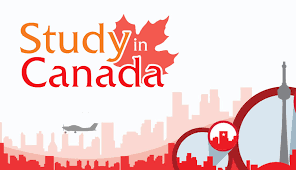If you’re thinking of studying abroad but all the options seem daunting and you don’t know where to start, look no further! This blog makes it easy to narrow down your search by telling you all the basics- when to start looking, what to consider, and more. Have that degree in Canada, minus any of the paperwork!
How to Obtain A Canada Student Visa
There are a few requirements you must meet in order to obtain a Canada Student Visa.
First and foremost, you must have been accepted into a designated learning institution. You can find a list of these institutions on the Citizenship and Immigration Canada website.
Secondly, you must prove that you have enough money to support yourself during your stay in Canada. The amount of money you will need depends on how long you plan on staying and whether or not you will have family accompanying you.
Finally, you must be in good health and have no criminal record. You may be asked to complete a medical exam as part of the visa application process.
If you meet all of the requirements, obtaining a Canada Student Visa is relatively simple. The first step is to fill out an application form, which can be found on the Citizenship and Immigration Canada website. Be sure to include all required documents, such as proof of financial support and acceptance into a designated learning institution.
Once your application is complete, submit it online or mail it to the nearest Canadian visa office. A processing fee will also be required at this time. After your application has been received, an immigration officer will review it and make a decision. If everything is in order, they will issue your visa and send it to the address provided on your application form.
Cost of Living in Canada
The cost of living in Canada varies depending on the city you choose to live in. Generally speaking, big cities like Toronto and Vancouver are more expensive than smaller cities. However, there are lots of ways to save money while living in Canada.
Here are some tips for saving money on your cost of living:
1. Find a roommate: Living with a roommate is a great way to splitting expenses like rent and utilities. This can help reduce your overall costs significantly.
2. Shop around for groceries: Not all grocery stores are created equal! Some stores offer cheaper prices on certain items than others. It pays to shop around to find the best deals on food.
3. Use public transportation: Driving your own car can be expensive, especially if you live in a big city with high parking fees. Public transportation is often cheaper and can be just as convenient.
4. Take advantage of student discounts: Many businesses offer student discounts on things like food, clothing, and entertainment. Be sure to ask about any available discounts before making a purchase.
College Admissions in Canada
The process of admissions into undergraduate programs at Canadian colleges and universities varies depending on the institution. In general, however, the admissions process is based on high school grades and results of standardized tests like the SAT or ACT. Students interested in studying in Canada should research the requirements of their desired institutions and plan accordingly.
There are many reasons to consider studying in Canada, including the chance to experience a different culture, learn new languages, and receive a world-class education. For international students, studying in Canada can also be more affordable than attending a college or university in another country. With so much to offer, it’s no wonder that an increasing number of students from around the world are choosing to study in Canada.
Different Types of Universities and Colleges
There are many different types of universities and colleges in Canada. Each type of institution has its own unique characteristics, and each offers a different type of education.
The most common type of university in Canada is the comprehensive university. These institutions offer a wide variety of programs at the undergraduate and graduate levels, and they conduct research in many different fields. The University of Toronto, McGill University, and the University of British Columbia are all examples of comprehensive universities.
Another type of university is the liberal arts college. These schools focus on providing a well-rounded education in the humanities, social sciences, and natural sciences. They usually have smaller class sizes than comprehensive universities, and they often require students to take part in internships or other experiential learning opportunities. Mount Allison University and Queen’s University are two examples of liberal arts colleges in Canada.
There are also several specialized types of universities in Canada. These include medical schools, business schools, engineering schools, law schools, and agricultural colleges. Each of these institutions provides education in a specific field or discipline. For example, McMaster University’s DeGroote School of Business is one of the leading business schools in the country, while Dalhousie University’s Faculty of Agriculture is oneof the leading agriculture programs in Canada.
Studying Abroad In Canada
If you’re thinking about studying abroad, Canada is a great option! With world-renowned universities and a high quality of education, you can’t go wrong with studying in Canada.
In addition to getting a top-notch education, you’ll also have the opportunity to explore a new country and culture. From the big cities to the breathtaking scenery, there’s so much to see and do in Canada.
Studying abroad in Canada is a once in a lifetime experience that you’ll never forget!




